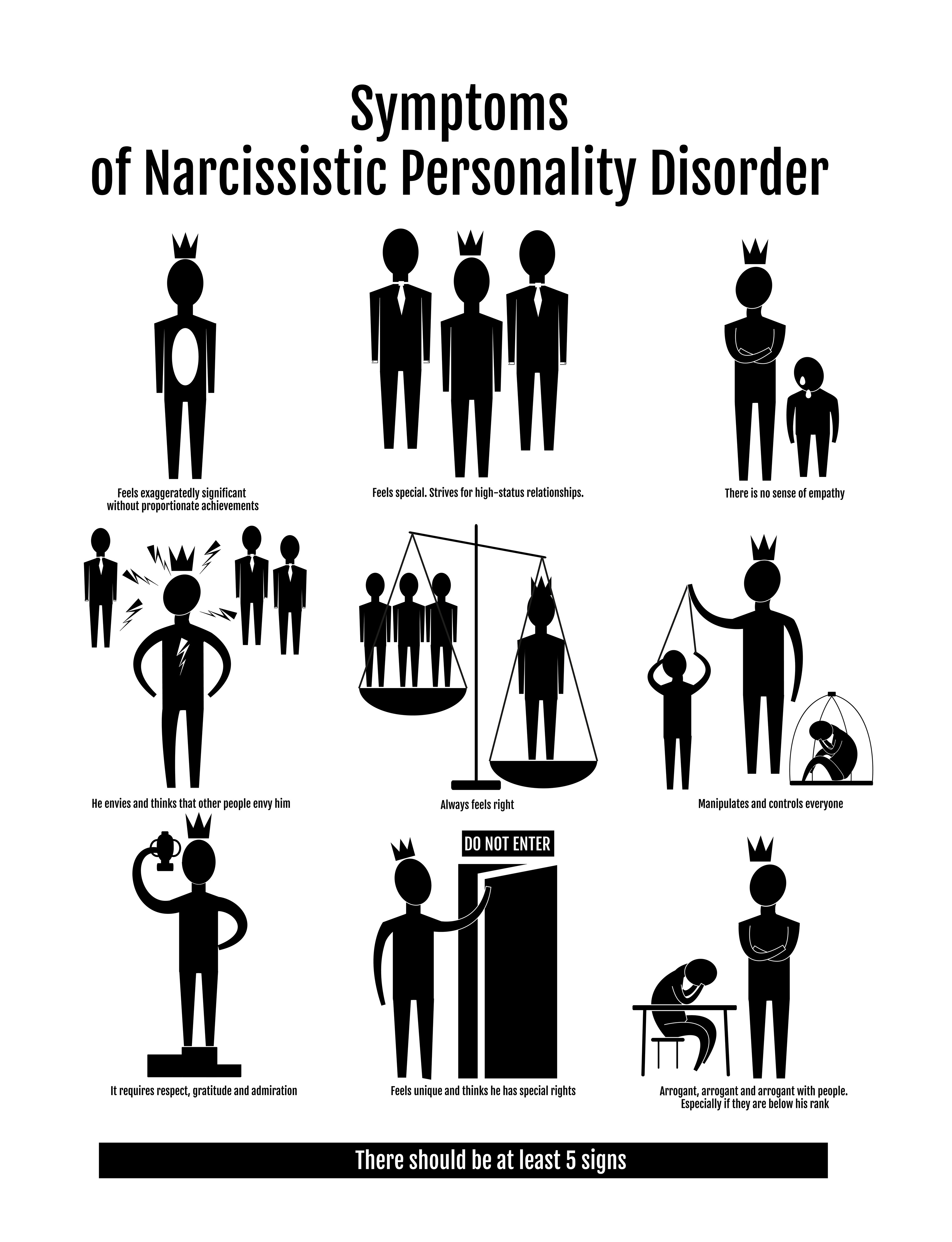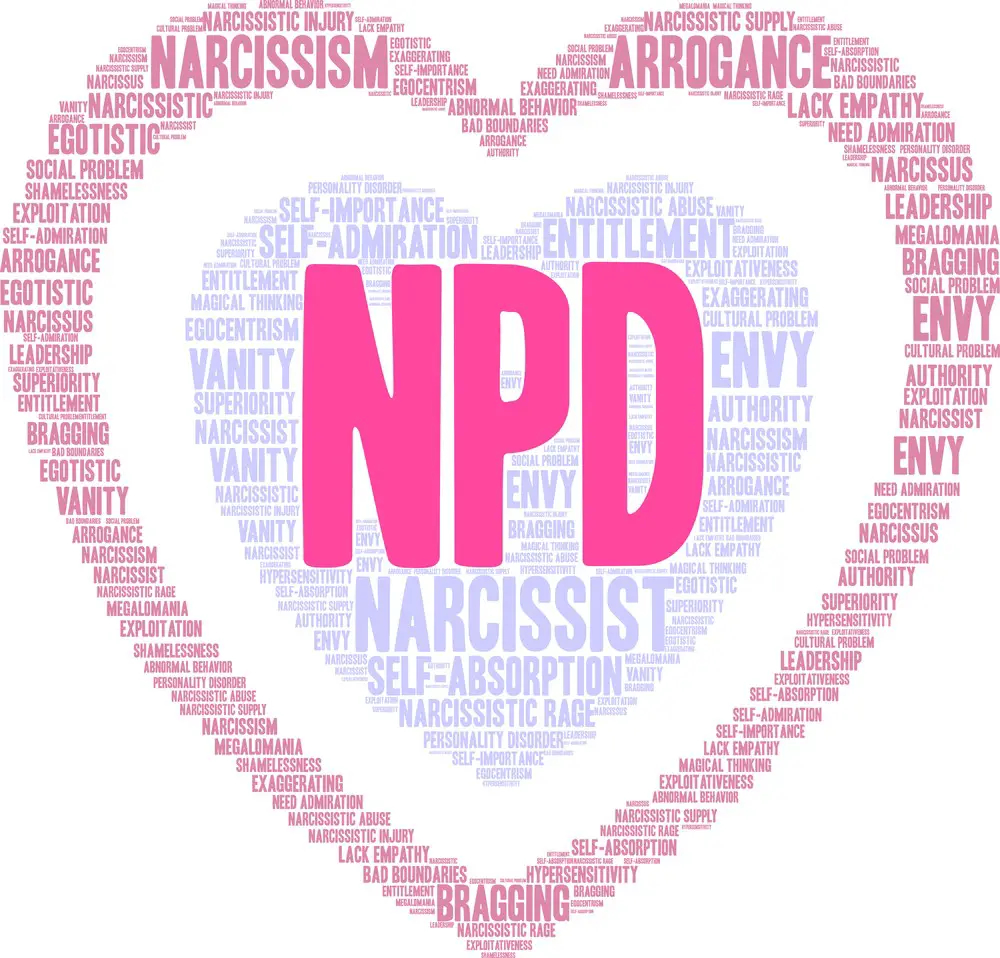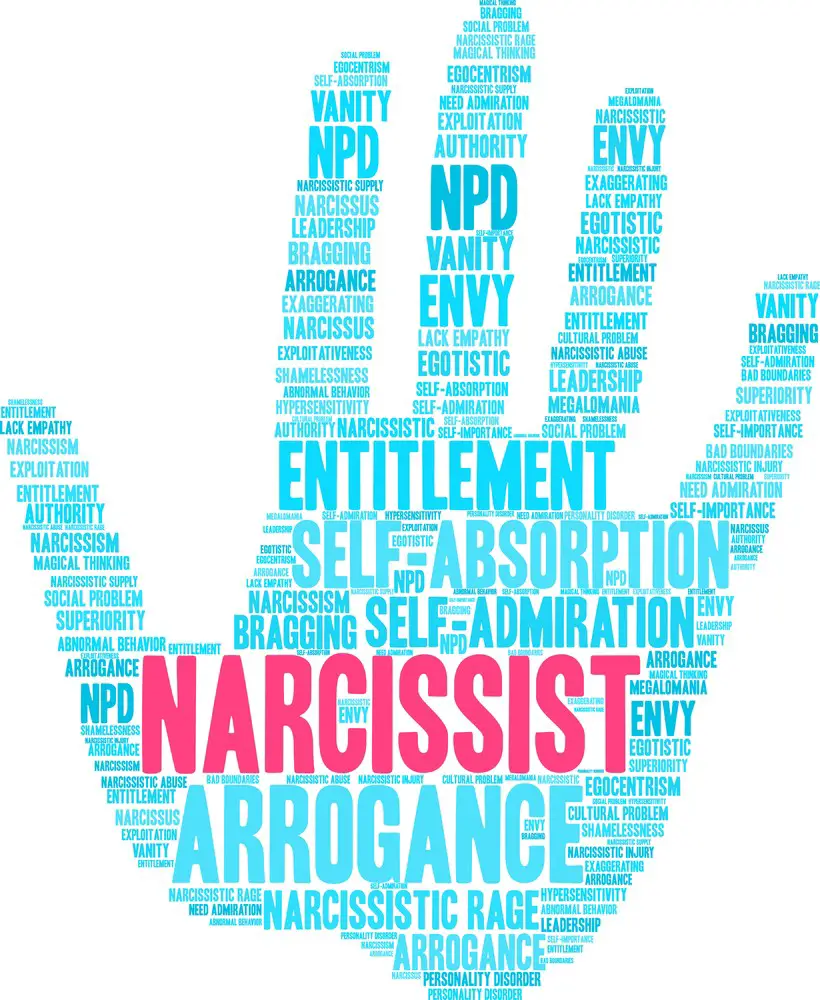As a BetterHelp affiliate, we receive compensation from BetterHelp if you purchase products or services through the links provided
Antagonistic narcissism is a complex personality trait characterized by a deep-seated need for admiration and inflated self-importance. This form of narcissism significantly impacts both the individual and their relationships with others, often resulting in conflict and emotional turmoil. Understanding these individuals’ behaviors, their impact on relationships, and their underlying mental health is essential to support those affected and promote healthier interactions.
For an in-depth comprehension of antagonistic narcissism, it is crucial to be familiar with the various types of narcissism. Although manifestations may differ, certain symptoms and behaviors are consistent among individuals displaying this trait. These include excessive self-focus, a sense of entitlement, manipulative tendencies, and an inability or unwillingness to empathize with others. By recognizing these signs, we can better understand the effect of antagonistic narcissism on relationships and mental health.
Research on antagonistic narcissism has significantly contributed to a broader understanding of this phenomenon. The existing body of literature provides insights into the techniques individuals use to assert control in relationships and the appropriate support and resources to help those affected. By examining the data available through scientific studies and mental health professionals, we can work towards a more informed perspective on this challenging personality trait.
Key Takeaways
- Antagonistic narcissism impacts individuals and their relationships, often resulting in conflict and emotional turmoil.
- Common symptoms include excessive self-focus, entitlement, manipulative tendencies, and a lack of empathy.
- Research provides insights on its effects, support, and resources for those affected by antagonistic narcissism.

Understanding Antagonistic Narcissism
Ah, antagonistic narcissism – a perplexing and intriguing personality trait that can create quite a bit of trouble in relationships and social situations. To get a grip on this vexing phenomenon, we must first differentiate it from classic narcissism and narcissistic personality disorder.
Simply put, narcissism is an inflated sense of self-importance, often accompanied by a hunger for adoration and a lack of empathy toward others. On the other hand, antagonistic narcissism introduces an aggressive twist. Piggybacking on those grandiose and self-serving tendencies, antagonistic narcissists engage in hostile behaviors that are seemingly designed to provoke and dominate.
Moreover, this cantankerous variant is not synonymous with Narcissistic Personality Disorder (NPD). While NPD is a bonafide mental disorder diagnosed by mental health professionals, antagonistic narcissism is a personality trait that varies across individuals. Despite these distinctions, it’s important to remember that these concepts intertwine, with antagonistic narcissism potentially contributing to NPD’s development.
Don’t be fooled into thinking that antagonistic narcissists are easy to spot in a crowd. Quite to the contrary, they often present a charming demeanor, winning hearts before revealing their darker side. How might we recognize these sly individuals, then? Watch for certain behaviors, such as taking advantage of others, lashing out when challenged, and exhibiting zero remorse for their uncouth actions.
Seeing how much turmoil antagonistic narcissists can inflict on their surroundings is disheartening. Be it their loved ones, colleagues, or simply passing acquaintances, no one remains unscathed. Regrettably, there’s no panacea for this arduous personality trait. However, shedding light on it and raising awareness might help mitigate its impact on our lives and foster resilience among those affected.

Types of Narcissism
Narcissism exists on a spectrum, with various types manifesting in different ways. Let’s delve into some of these fascinating types: Overt and Covert Narcissism, Malignant and Altruistic Narcissism, and Agentic and Communal Narcissism.
Overt and Covert Narcissism
On the one hand, we have the bold and self-assured overt narcissist: easily recognized by their grandiose behavior and constant need for admiration. These individuals tend to be unapologetically self-centered, dominating conversations and seeking high status.
Conversely, the covert narcissist is a sly creature: characterized by vulnerability and hypersensitivity. Wrapped up in a cloak of shyness, they seek validation covertly, often playing the victim and manipulating others to gain sympathy. Both overt and covert narcissism share the common trait of an inflated sense of self-importance; however, their methods of expression and validation are remarkably distinct.
Malignant and Altruistic Narcissism
Malignant narcissism is a sinister form of personality disorder, blending narcissistic traits with elements of sociopathy or even psychopathy. These individuals cruelly exploit and manipulate others without remorse, reveling in their power and dominance.
In stark contrast, altruistic narcissism is presented as a seemingly benevolent force. Underneath the philanthropic facade lies the true motive: a need for ego-boosting attention and validation. Altruistic narcissists strategically help others in ways that put them in the spotlight, ensuring they are lauded for their good deeds.

Agentic and Communal Narcissism
On the agentic side of the spectrum, we find agentic narcissism: characterized by a relentless pursuit of success, status, and personal achievements. These narcissists seek fame and power, sometimes stepping on others to reach their goals. Desiring admiration and praise, they strive for greatness and often view themselves as superior to others.
In contrast, communal narcissists don’t thirst for personal victories but, instead, claim moral superiority. They are important to group accomplishments, good deeds, and social causes. While seemingly benevolent, communal narcissists still crave admiration and validation by associating with these virtuous endeavors.
Each type of narcissism presents its challenges, shedding light on the multifaceted nature of this complex personality disorder. No two narcissists are alike, but they all share an unwavering need to be admired, acknowledged, and, ultimately, seen as exceptional beings.
Symptoms and Behaviors
Arrogance and Entitlement
Antagonistic narcissists exhibit strong arrogance and entitlement, thinking they deserve special treatment. They often believe they’re superior to others and may constantly seek validation for their inflated self-image. This attitude can manifest itself in various ways, such as bragging about achievements, expecting praise, or dismissing the opinions and feelings of others.
- “She acted like the only one who could understand the topic, constantly belittling her coworkers.”
- “He demanded that the store open early just for him since he was sure his time was more valuable than everyone else’s.”

Manipulation and Exploitation
Manipulation and exploitation are common tools in the antagonistic narcissist’s arsenal. They use these tactics to get what they want and maintain power over others. They might deceive, lie, or twist the truth to achieve their goals. The narcissist’s manipulative behavior can be difficult to detect, as they often skillfully exploit people’s emotions and vulnerabilities.
- “She knew exactly how to manipulate her friends into following her ridiculous plan.”
- “He exploited his partner’s insecurities to maintain control over the relationship.”
Reactivity and Rage
Reactivity and rage are other significant aspects of antagonistic narcissism. When challenged or confronted, they commonly react with intense anger or even aggression, perceiving criticism as a direct threat. This defensive response is sometimes called “narcissistic injury.” Their inability to manage their emotions can lead to destructive outbursts that strain relationships with others.
- “The moment anyone dared to question his authority, he would fly into a fit of rage.”
- “Her temper was so explosive, it felt like walking on eggshells just to avoid setting her off.”

Lack of Empathy
A defining characteristic of antagonistic narcissists is their lack of empathy. They appear to have an inability to connect with the emotions of others genuinely and often disregard the feelings and needs of those around them. This emotional blindness can lead to callous, self-centered behavior that damages relationships and creates a toxic environment.
- “He seemed completely indifferent to the pain he caused his family with his cruel words.”
- “She never showed any concern for the well-being of her employees, caring only about the bottom line.”
As seen through these symptoms and behaviors, antagonistic narcissists create a challenging atmosphere for those in their lives. Recognizing these traits is crucial to protect oneself and navigate the complexities of interacting with such individuals.
Antagonistic Narcissism in Relationships
Romantic Relationships
Antagonistic narcissism can wreak havoc in romantic relationships. Partners of antagonistic narcissists often walk on eggshells, constantly trying to avoid confrontations. These narcissists thrive on power and control, using manipulation and subtle threats to keep their partners on edge. Trust is hard to come by as they crave admiration but rarely reciprocate genuine affection.
Emotionally, such relationships are far from nurturing. The antagonistic narcissist demands loyalty yet frequently undermines the other’s feelings and needs. Partners may feel like they’re on an emotional rollercoaster as they attempt to meet the ever-changing demands of their narcissistic significant other.
Family and Friends
In family and friend circles, the antagonistic narcissist is no less damaging. They may demand respect without giving any in return, often causing relationship rifts. Their need for control can extend to all aspects of family life, from decisions on parenting to how others should conduct themselves. Manipulation is a common tactic, as they exploit weaknesses and insecurities to maintain their grip on others.
Family and friends may feel emotionally drained due to dealing with the antagonistic narcissist. On the one hand, they may feel obligated to maintain the connection, but on the other, they may long for an escape from the constant strife.
Work and Social Settings
In the realm of work and social situations, antagonistic narcissism can be equally corrosive. The narcissist’s aggressive behavior may alienate colleagues and superiors, creating a hostile and unproductive environment. Their need for constant admiration can lead to ineffective strategies and poor decision-making since they are more focused on receiving praise than working on viable solutions.
In social settings, their manipulative tendencies can damage budding friendships, leaving a trail of broken relationships in their wake. Trust and camaraderie are often casualties as others become wary of their narcissistic traits and the inevitable conflicts.
Despite all these challenges, it’s essential to remember that not all is lost. Help and support are available for those impacted by antagonistic narcissism, whether the narcissists themselves or the unfortunate victims in their web of relationships.
Mental Health Aspects
Anxiety and Depression
Antagonistic narcissists often experience various mental health conditions, with anxiety and depression being common. Individuals with narcissistic traits may feel constantly on edge, fearing that others will discover their perceived inadequacies. This anxiety can be so overwhelming that it leads to feelings of hopelessness and despair, further exacerbating depressive symptoms.
In addition, antagonistic narcissists may struggle to cope with the inevitable setbacks and disappointments that life presents. Their inflated self-image can make any perceived failure feel especially devastating, leading to deep feelings of shame and worthlessness, contributing to depression. Mental health professionals who follow the DSM-5, or Diagnostic and Statistical Manual of Mental Disorders, should be well-equipped to address these challenges and provide the necessary support to help these individuals manage their anxiety and depression.
Substance Use and Abuse
Substance use can be another consequence of the mental health challenges antagonistic narcissists face. Turning to drugs or alcohol might seem like a quick fix for numbing the anxiety and depression they experience. However, excessive substance use can quickly become a dangerous cycle of abuse, further deteriorating one’s mental health.
The combination of substance use and antagonistic narcissism is a precarious mix. It makes it more challenging for mental health professionals to provide proper treatment and increases the risk of harm to both the individual and the people around them. Abusing substances can lead to destructive behaviors, alienating them from friends, family, and support networks.
In conclusion, the mental health aspects of antagonistic narcissism are complex and multifaceted. Although there’s no one-size-fits-all solution for addressing these challenges, it’s crucial to recognize the importance of seeking help from mental health professionals trained in understanding and supporting individuals with this condition.
Research on Antagonistic Narcissism
Our exploration into the world of antagonistic narcissism uncovers fascinating revelations and insights. Researchers have delved deep into this enigmatic personality trait, eager to unravel the mysteries beneath its surface.
A crucial piece of the puzzle lies in the concept of “lwa”. This term, occasionally cropping up in the literature, seems to hint at some underlying foundational element. Yet, despite the tantalizing glimpses, this enigma remains shrouded in secrecy. Indeed, the veil obscuring this phenomenon’s precise nature challenges even the most diligent of researchers.
Diving into the murky depths of shame and insecurity, these emotions can sometimes exacerbate narcissistic tendencies. Individuals struggling with these emotions may portray an excessively confident facade externally. However, privately, they might grapple with a sense of inadequacy that continually threatens to erode their self-worth.
As we delve into the antagonistic narcissism labyrinth, the research reveals nuances and complexities. Akin to a dazzling kaleidoscope, each new study adds a facet, refracting the light and deepening our understanding. Yet, common threads emerge, weaving together a rich tapestry of insights that paint a striking picture of this intriguing trait.
Be it the ephemeral nature of lwa or the compelling interplay between shame, insecurity, and narcissism, the pursuit of knowledge on antagonistic narcissism forges onward. The tapestry will continue to grow, with each new study adding to its intricate beauty. In this quest for comprehension, the ever-evolving landscape of research offers a captivating and dynamic field for scholars and readers alike.
Support and Resources
Finding support when dealing with an antagonistic narcissist is crucial, but don’t worry, there’s help out there. It’s important to reach out to trusted friends or family members who can offer a compassionate ear and understanding. Share your feelings and experiences with them, as they can provide invaluable emotional support.
Aside from getting help from loved ones, you might consider professional assistance. Many therapists specialize in dealing with narcissistic personalities and can provide useful guidance on coping strategies. Therapy can be an essential step in regaining your strength and self-esteem.
Moreover, connecting with others who have gone through similar experiences can be very helpful. Support groups and online forums offer a safe space to talk openly and learn from the experiences of others who have encountered antagonistic narcissists, providing solace in knowing you’re not alone. This camaraderie can prove to be exceptionally comforting.
One of the key resources available to those dealing with narcissistic abuse is the National Domestic Violence Hotline. Don’t hesitate to contact them if you find yourself in a dangerous or abusive situation. They offer 24/7 assistance, can provide information and resources, and even help you develop a safety plan.
To sum it up, it’s essential to prioritize self-care and seek out support in different forms when facing an antagonistic narcissist. By connecting with the right resources, you can navigate through difficult times and come out stronger on the other side.
Frequently Asked Questions
What are the common traits of an antagonistic narcissist?
Antagonistic narcissists can be quite a handful! They tend to possess various traits, including an inflated sense of self-importance, an insatiable need for admiration, and extreme arrogance. Additionally, they may display a relentless quest for power, a lack of empathy, and a penchant for taking advantage of others. It’s vital to watch for these behaviors – they’re unmistakable in their intensity!
How can one deal with an antagonistic narcissist?
Dealing with an antagonistic narcissist is no walk in the park. However, establishing boundaries and maintaining your self-respect can work wonders. Additionally, one should avoid getting emotionally entangled in their ploys, remain grounded, and seek support from close friends or mental health professionals when necessary. Remember, it’s tough; don’t beat yourself up if it feels like an uphill battle.
Are there effective strategies for communicating with an antagonistic narcissist?
Communicating with an antagonistic narcissist can be tricky. However, adopting a few strategies can make it a bit more palatable. First, striving for assertive communication, rather than getting defensive, is vital. Moreover, avoiding the temptation to feed their ego by staying focused on their values and thoughts can help. Lastly, stay calm and collected, even when emotions run high.
What causes someone to become an antagonistic narcissist?
Digging into the root of antagonistic narcissism can uncover a multitude of factors. Often, underlying psychological issues or traumatic experiences from childhood can come into play. Additionally, upbringing and social factors may contribute to their development. However, it’s important to note that there’s no one-size-fits-all explanation – it’s ultimately a complex web of influences.
What are the potential consequences of a relationship with an antagonistic narcissist?
One thing’s for sure – being in a relationship with an antagonistic narcissist isn’t a bed of roses. Potential consequences may include feeling drained, experiencing low self-esteem, and being on the receiving end of manipulation tactics. Additionally, one may begin to question their sanity or reality. It can be challenging to navigate, but recognizing the signs early on is crucial to addressing the situation.
How can someone heal after dealing with an antagonistic narcissist?
Healing from an encounter with an antagonistic narcissist is a journey, but it’s achievable. Steps to recovery may involve seeking therapy or counseling, reconnecting with your support network, and rebuilding your self-esteem. Don’t forget to nurture yourself and practice self-care – you deserve it! Finally, remember that healing takes time – patience, perseverance, and self-compassion are essential ingredients on the road to recovery.
- Stress Management: What is the Relationship Between Stress and Addiction? - June 28, 2024
- Exploring Techniques to Maintain a Healthy Lifestyle without Drugs - May 28, 2024
- How Acupuncture Helps Treat Chronic Fatigue Syndrome - May 28, 2024
This site contains affiliate links to products. We will receive a commission for purchases made through these links.




